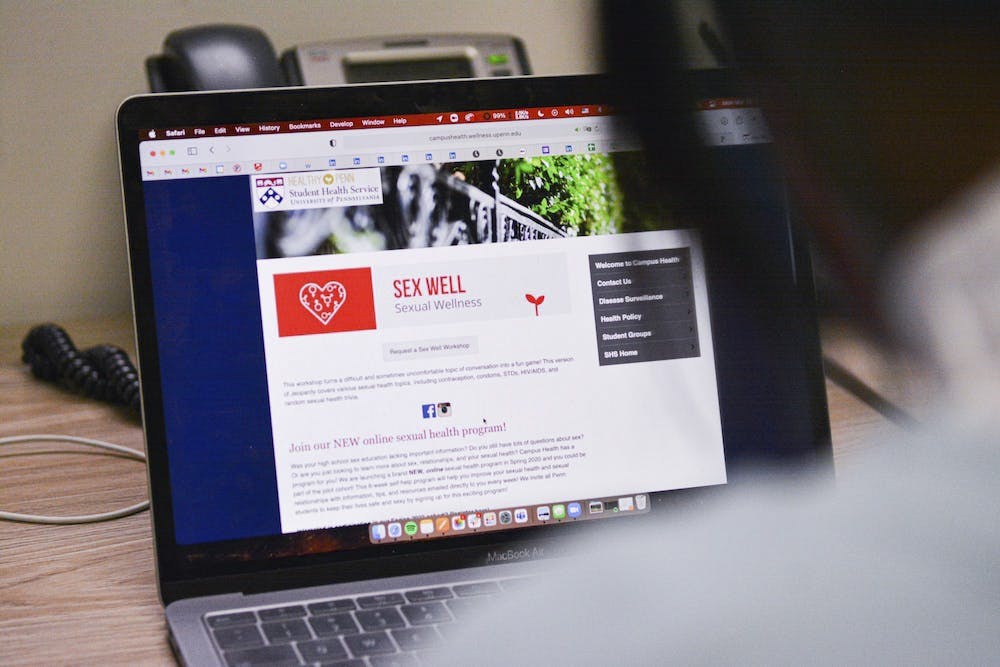
Wellness at Penn's Public Health and Wellbeing is bringing back two online self-help initiatives designed to help students improve their sleep and sexual health this semester.
The programs — called “Refresh” and “Penn’s Declassified Sex Survival Guide” — have each garnered 3,400 participants and 1,500 participants respectively since their inception. Both programs are open to all students, staff, and faculty in the Penn community.
The “Refresh” program is a seven-week asynchronous program where students can receive weekly emails with advice on how to strengthen their sleep quality. The “Penn's Declassified Sex Survival Guide” is a six-week asynchronous program that provides comprehensive sex education to students through email.
Public Health and Wellbeing introduced this initiative to Penn in spring 2018 after past National College Health Assessment Survey results showed a demand for additional programming surrounding sleep health.
The “Refresh” program originated at the Department of Psychiatry and Behavioral Sciences at Stanford University and was created for students to improve their sleep and overall well-being. Its curriculum dives deep into topics such as the science behind the circadian clock, how to construct a productive sleep environment, and mindful bedtime practices.
Over 800 participants registered in the first semester it was launched, reflecting “the need and interest” for such a program, Public Health and Wellbeing Health Educator Lauren Cordova wrote in an email to The Daily Pennsylvanian.
“Because the program is asynchronous and offered through email, it is accessible and fits into the schedules of almost anyone,” Cordova said. “Each semester, 'Refresh' has shown a statistically significant reduction of insomnia-like symptoms for those who have insomnia based on the Insomnia Severity Index (ISI), as well as notable improvements in overall sleep quality among all participants.”
Due to the success of “Refresh,” Public Health and Wellbeing spearheaded the creation of “Penn’s Declassified Sex Survival Guide” program in spring 2019 and launched it in spring 2020.
The “Declassified” curriculum covers anatomy, sexually transmitted infections, barrier and contraceptive methods of birth control, communication, and other holistic sexual health information. The program has received immense positive feedback, according to Cordova.
“Participants saw a statistically significant increase in positive attitudes toward safer sex after finishing the program and a statistically significant increase in those who had been tested for HIV one year after finishing the program,” she said.
She added that the team has received great feedback specifically on the program’s discussion of “substance use, communication, and healthy relationships.”
Over the course of the year, Public Health and Wellbeing will have served hundreds of students through its “Refresh” and “Declassified” cohorts. Last spring, 452 members of the Penn community participated in “Refresh,” and 180 participated in “Penn’s Declassified Sex Survival Guide.” This fall, 140 members of the Penn community are currently enrolled in “Refresh” and about 60 are enrolled in “Declassified,” according to Cordova.
“We generally see higher participation in the spring semester, especially among undergraduate students, because after the fall semester students start recognizing their own behavior and identifying their need to be educated on sleep and/or sexual health,” she said.
Outside of the “Refresh” and “Declassified” programs, anyone who is interested in hosting a health workshop for their college house, students group, class, or any other group can request a workshop on Pubic Health and Wellbeing’s website.
The Daily Pennsylvanian is an independent, student-run newspaper. Please consider making a donation to support the coverage that shapes the University. Your generosity ensures a future of strong journalism at Penn.
Donate







